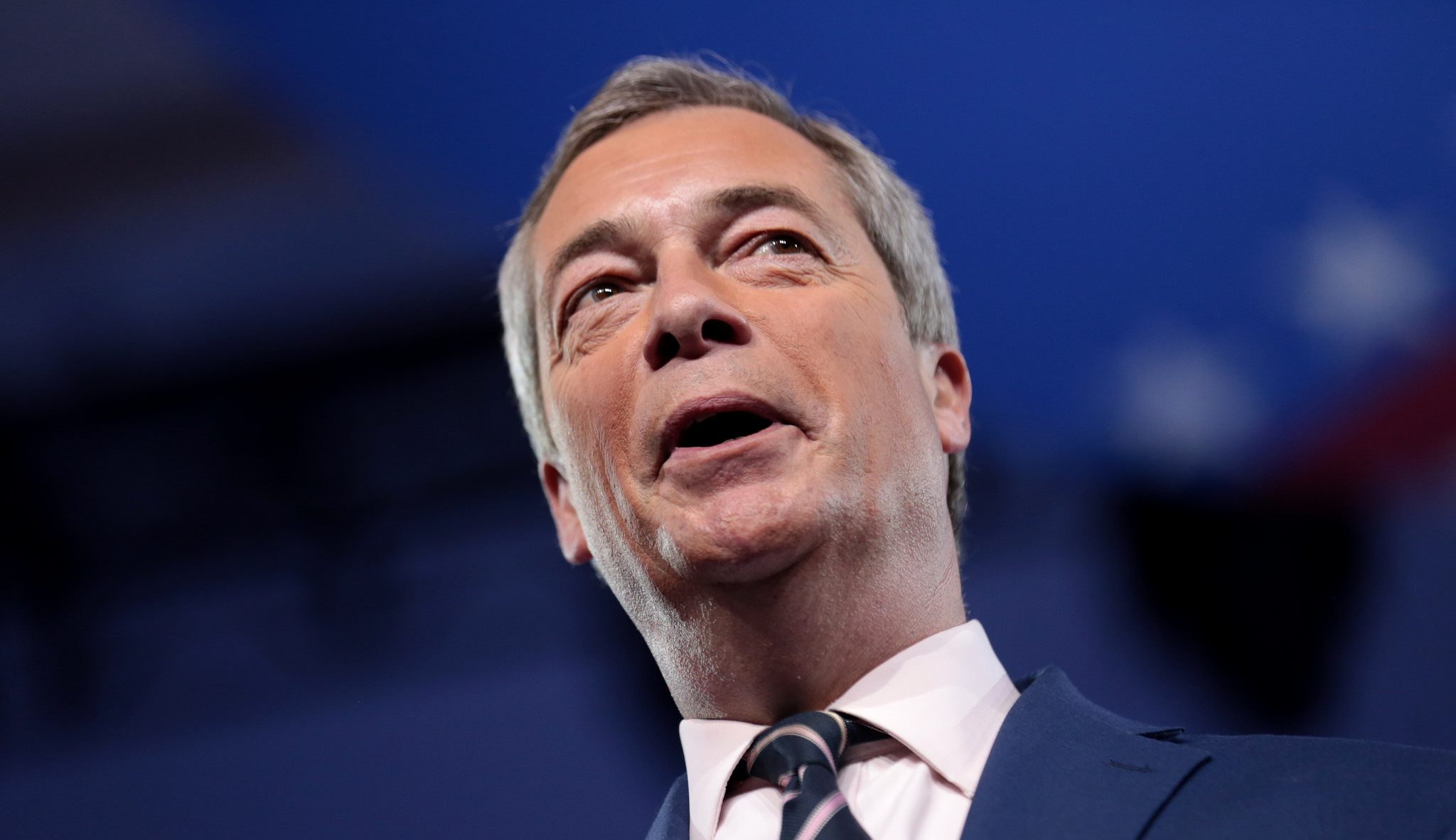
The result of the Brexit referendum in 2016 threw Ukip into an existential crisis from which it is only now beginning to emerge. With the narrow victory for the campaign to leave the EU, the party was suddenly left without a clear purpose. However, from this internal crisis appeared a golden opportunity for its former leader Nigel Farage, tied closely to the actions of his successor Gerard Batten.
Since becoming party leader, Batten has steadied the ship by rediscovering a purpose for Ukip in strident Islamophobia, a pledge to repeal hate speech guidelines and the Equality Act of 2010, and a decision to employ as his advisor the far right poster boy Tommy Robinson (real name Stephen Yaxley-Lennon).
Herein lies Farage’s opportunity: by citing these developments as his reason for leaving Ukip, Farage has distanced himself from Batten’s leadership in order to reinvent himself as a comparatively moderate political figure. In so doing, Farage hopes to lead the new Brexit party formed by former Ukip member Catherine Blaiklock. Unfortunately, this attempt at reinvention has been aided by various media outlets – including The Guardian – which have exaggerated a discontinuity between two separate incarnations of Ukip.
The argument goes as follows: the first Ukip, while having “some off-piste moments” such as the Breaking Point poster, focused mainly on “lower taxes” and “bashing Brussels”. The second Ukip (or ‘Ukip 2.0’), is defined by Batten’s Islamophobia and courting of far right figures such as Yaxley-Lennon.
There’s nothing wrong in and of itself with highlighting the differences between Farage’s and Batten’s respective versions of the party. Batten does indeed represent a changing of the guard and a further radicalisation of Ukip. However, exaggerating the discontinuity between Farage’s and Batten’s parties is at best naïve and at worst highly dangerous, as it risks obscuring the fact that Ukip has always been a party of the radical right.
At its core, Ukip has nativist and authoritarian values. Nativism refers to a mixture of xenophobia and nationalism, which is often linked to a fierce euro-scepticism, while authoritarianism refers to a strong focus on issues relating to law and order. With this in mind, while Batten’s leadership may be more extreme, he is building on solid radical right foundations put in place by Farage.
On the count of nativism, Farage’s euro-scepticism is fuelled by xenophobic views towards Europeans, being accused on numerous occasions of ‘Euracism’. Farage also used his position as MEP to cosy up to Europe’s radical right parties and engage in racist rhetoric. Using a key Islamophobic trope of portraying ‘Christian British values’ as under threat from ‘sharia courts’ and ‘sharia law’, Farage stoked fears of a Muslim invasion. With this in mind, the Breaking Point poster in the Brexit campaign was by no means an off-piste moment or an aberration, but instead very true to form. Farage’s nativism has also extended to a pledge to remove laws against discrimination on the grounds of race.
On the count of authoritarianism, Farage’s speeches often show key hallmarks of authoritarian rhetoric, such as calls for “more backbone” in our police force. Ukip’s 2015 election manifesto also included measures with both authoritarian pledges to “deport ‘foreigners’ who commit crimes in Britain”, and to “remove foreign criminals” from prisons to free up space. Farage also proposed calling a referendum on the reinstatement of the death penalty (even though the leader claimed to be personally opposed to this measure).
Shielding Ukip against accusations of radical right tendencies was a ban in its statute against any former members of the National Front, the BNP the EDL or Britain First from joining the party. This should be viewed, however, as a political strategy rather than a commitment to liberal values. Declaring himself proud to have taken a third of the BNP’s vote in 2014, Farage demonstrated his hunger for the radical right vote. The fact that Nick Griffin himself declared his intention to vote for Farage’s party and proposed an alliance with the BNP, initially backed by members of Ukip (though not by Farage), also speaks volumes about Farage’s incarnation of the party.
And then there are Farage’s own political views. Rachel Cohen implores us to “never forget that Nige was considered too racist to be a prefect at a public school, which is really very racist”. Cohen is alluding to the fact that many of Farage’s teachers had shown grave concerns regarding his racist and fascist behaviour, including a claim he “marched through a village at night singing Hitler Youth songs”.
Just as Farage attempted to hide his schoolboy neo-fascist sympathies behind the Ukip logo, he is hoping to repeat this trick once again by leaving the party over its “extremism”. Yes, Batten is indeed pushing the party further towards the radical right, as the removal of Europe as Ukip’s principal enemy has made the party’s nativist tendencies surrounding Islamophobia more apparent and its authoritarianism more explicit. However, any rupture with Farage’s version of radical right Ukip should not be exaggerated, as without the former Ukip leader’s xenophobic, racist politics, his successor would have little to build on. Farage’s reinvention as a moderate politician is a ruse, and it must be resisted.